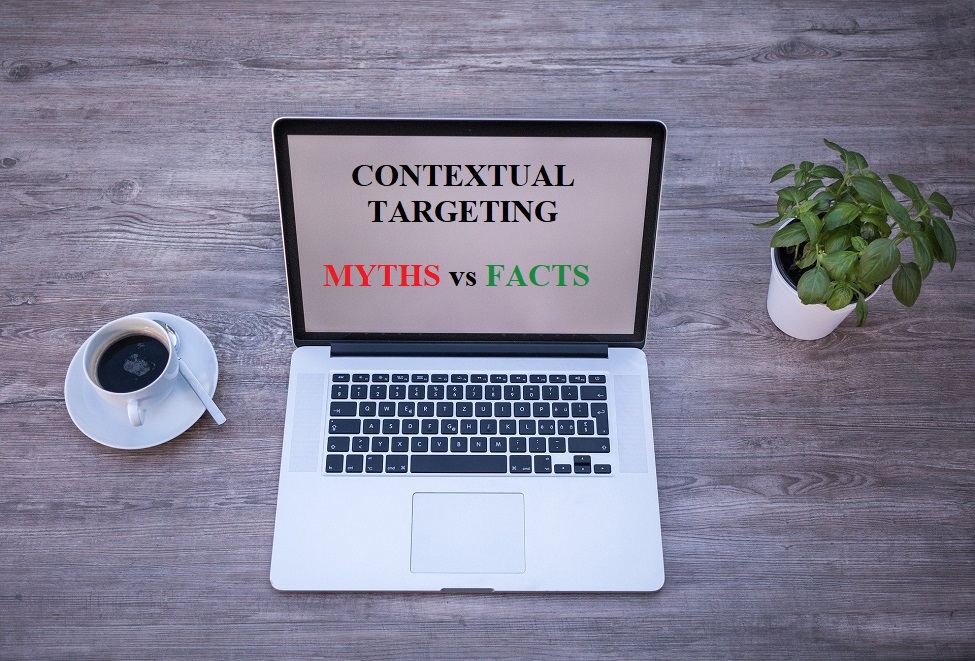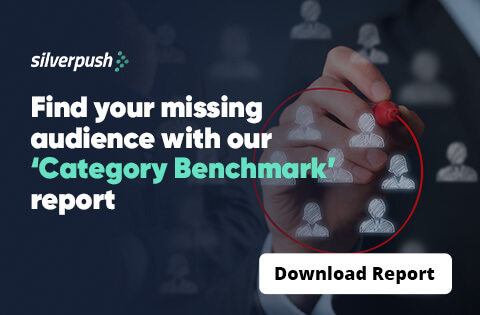Busting Myths about Contextual Targeting | 13 Sep, 2021

In the wake of phasing out of third-party cookies and rising brand safety issues, advertisers are increasingly adopting contextual targeting. But there are still prevailing certain myths that are making some marketers hesitant in implementing contextual targeting.
This article tries to bust these myths so that marketers get a clear picture of contextual targeting.
Myth 1: Contextual targeting is a simple, keyword-based approach
It is true that previously contextual targeting was based entirely on keywords, but this is not the case now. Today, we have machine learning and AI-powered contextual targeting technology that delivers unparalleled results.
Conventional contextual advertising involves targeting desired keywords in web addresses, titles, meta descriptions, tags, page content, etc. for placement of relevant ads. Similarly, conventional brand safety techniques involve avoiding ad placement against content having blacklisted keywords.
Conventional keyword-based techniques can lead to decrease in a campaign’s reach by labeling brand safe content as unsafe. For example, if a food company wants to run its ads against food content and has put alcohol in the list of blocked keywords, then by using conventional contextual advertising approach, its ads will be blocked not only against drunk driving content but also against content featuring recipes that use alcohol just as one of the ingredients. This will cast a negative impact on the campaign’s reach.
Thus, traditional keyword-based approach fails to understand nuances in context. This limitation has been overcome by contextual targeting technology powered by artificial intelligence. This technology maximizes reach, while ensuring brand safety and brand suitability.
Myth 2: Contextual targeting is less effective than cookie-based approach
This is completely untrue. Research shows that contextual ad targeting offers significantly high neural engagement and ad recall, when compared to random ad placements. Moreover, it has been found that there is a considerable increase in consumers’ purchase intent when they are exposed to ads that are contextually relevant to the content they are consuming.
The results of a marketing survey, in which over one thousand people participated, show that for the majority of consumers, it is important that ads which they see on a web page are contextually relevant to the content on that page.
Majority of the survey’s respondents showed increased favorability towards brands showing contextually relevant ads. Memorability for contextually aligned ads was also found to be significantly greater than randomly placed ads. Moreover, survey found that consumers not only prefer contextually aligned ads, but also form a better perception and opinion of them.
Myth 3: It is less cost-efficient in comparison to cookie-based advertising
When it comes to cost efficiency, contextual advertising is far better than cookie-based behavioral advertising. The cost of contextual ad impressions is considerably less than behavioral ad impressions. Research shows that effective cost per thousand impressions (eCPM), cost per click (CPC) and cost per thousand viewable impressions (vCPM) for contextual ads are significantly less than cookie-based ads.
In a study conducted in partnership with Dentsu Aegis Network, eCPM for contextual ads was found to be thirty-six percent less than that for third-party cookie-based ads. CPC for ads that were contextually targeted came out to be forty-eight percent less than CPC for ads that involved cookie-based targeting, while contextual vCPM was less than behavioral vCPM by forty-one percent.
Myth 4: Contextual targeting offers same results, irrespective of the provider
Although marketers should always go for AI-powered contextual ad targeting over conventional keyword-based technique, no two AI tech offering contextual advertising companies are equal in driving results. Marketers should choose a company that has many years of expertise and experience in contextual ad placement. The chosen company should have well-trained, refined and powerful machine learning and AI algorithms in order to drive excellent results.
The above myth-busting discussion will help marketers in better understanding contextual targeting, so that they can confidently use it to effectively achieve their advertising and brand safety goals.

BLOGS
Migrate from Oracle to Silverpush: Unlock Advanced Contextual Advertising Solutions
The news that Oracle plans to shut down its advertising business by the end of September has sent shockwaves through the ad industry. Once the most prominent advertising data seller in the market, Oracle is now closing its advertising division. This included Datalogix for offline consumer data, Grapeshot for contextual ...

BLOGS
Cannes 2024 Recap: Silverpush Takes AI Discussions to the French Riviera
As Cannes 2024 concludes, the echoes of vibrant discussions, insightful panels, and significant meetings continue to resonate. This year’s central theme was clear: AI's growing dominance in advertising solutions, optimizing campaigns for business outcomes, and reaching audiences effectively across various screens. With videos becoming increasingly digital, the potential for more addressable ...

BLOGS
UK Programmatic Advertising Spending & Trends in 2024
In 2023, programmatic advertising spending in the UK reached roughly £30.6 billion. The programmatic display advertising market is projected to grow by 12.6% in 2024, bringing it to within just four percentage points of becoming fully programmatic. This highlights how integral this technology has become to the UK ad industry. ...







